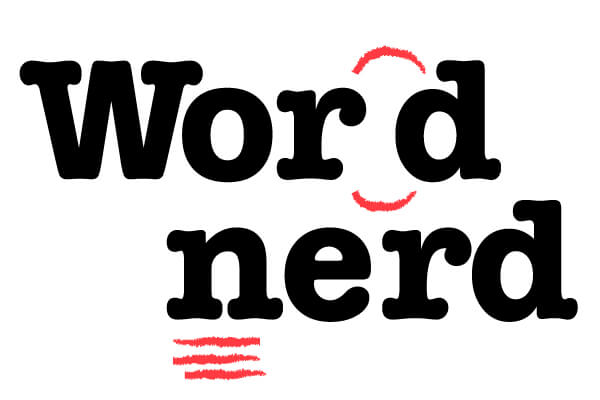
In 1998, the journal Philosophy and Literature held its fourth and final Bad Writing Contest, which recognized “the most stylistically lamentable passages found in scholarly books and articles.” First place went to Judith Butler, a gender theorist and philosopher, for this excerpt from a 1997 article in Diacritics:
The move from a structuralist account in which capital is understood to structure social relations in relatively homologous ways to a view of hegemony in which power relations are subject to repetition, convergence, and rearticulation brought the question of temporality into the thinking of structure, and marked a shift from a form of Althusserian theory that takes structural totalities as theoretical objects to one in which the insights into the contingent possibility of structure inaugurate a renewed conception of hegemony as bound up with the contingent sites and strategies of the rearticulation of power.
The business world gets a lot of grief for its mangling of the English language, and with good reason: it is, after all, responsible for such horrors as “organizationalize,” “thought leader,” “deliverables,” and “downsizing” (a truly loathsome euphemism). But it’s sentences like Butler’s that make me want to take my brain out of my head, run it under some cold water, and then leave it to rest for a while in some sunny and quiet place—which is funny, because just over a decade ago, I wanted nothing more than to write just like her.
Ten years (or so) ago, I was pursuing an English PhD on a topic so specific, so ludicrously narrow, that it was a real struggle to craft a dissertation title that would provide an accurate sense of the subject but also end at some point. I pulled out all the stops; I used all the buzzwords (although I would probably have called them something like “legitimizing linguistic signifiers”); I told friends that my goal was to make my thesis read as if it had been translated from German. If I had won Philosophy and Literature’s Bad Writing Contest, it would have been a clear and reassuring sign that I was going places—places with tenure.
I was not simply a craven opportunist: some of the concepts I was discussing had accrued their own specific vocabularies; some of the ideas I was exploring were complicated enough that specificity and precision were desirable. But I definitely also knew that other academics would be more likely to take me seriously if my prose was abstruse and inscrutable. I did my best to accommodate them.
The fact that my thesis could not, by any stretch of the imagination, be termed “readable” or “a veritable romp” is not a terrible thing. Its impenetrability will not in any way hurt the three, maybe even four people who will end up having to dip into it for some obscure professional reason of their own. But it does trouble me that academics—in English, at least (that’s the only discipline I’m in any way qualified to make pronouncements about)—have cooked up a specialized vocabulary and an idiosyncratic prose style that are sure to alienate almost all non-academics. From what I was able to gather, they’ve done so in order to (a) distance themselves from earlier critics belonging to the “Great Works, Human Values, and Authoritative Observations from Me” school, (b) make English criticism seem complicated, fancy, and rigorous, just like science, which it’s totally just as good as, and (c) align themselves with French theorists, who everyone agreed were pretty rebellious, cool, and incomprehensible.
In grad school, I met many smart people with extremely interesting ideas: the fact that their work will be seen only by a small number of other academics is not nothing. But, especially at a time when informed discourse is viewed as deeply suspect (something that, admittedly, could probably be said at almost any time), it would be nice if those smart people could share those extremely interesting ideas with more than the handful of people who work in their particular areas. To do that, they would have to simplify their writing and publish it in outlets available outside university libraries.
It’s unlikely, though, that academics will suddenly stop publishing in journals (journal bylines matter on CVs) and start publishing in newspapers or on websites (newspaper and web bylines don’t matter on CVs). The job market is so crushingly competitive that would-be tenure-trackers can’t afford to pass up a chance at Eighteenth-Century Studies for a piece on Buzzfeed. Besides, so-called public intellectuals are often viewed with scorn by ivory-tower denizens—they’re insufficiently serious; they’re unnecessarily popular; they debase any genuine insights they may have in order to pander to intellectual dilettantes. And to be fair, it’s not as if editors everywhere are clamouring for English professors to turn populist and enthrall the reading public.
But, when it comes down it, I’m not worried about the reading public. I’m selfish—I’m worried about me. I lost my taste for tortured verbiage long before I left university; indeed, its stranglehold on the profession is one of the reasons I stopped wanting to be an academic. Now that I’m well out of the university system, I want to be able to read engrossing, challenging pieces written by perceptive and articulate people: there are such people in both business and academe. But I am no longer willing to wade through things like “thinkfluencer on the bleeding edge who pushes the envelope” (business) and “hegemonic subject in a liminal discursive space, who, paradoxically, both obfuscates and concretizes the master narrative” (academe) to get to the good stuff. I’m not arguing against complexity or wordiness—but there’s an irony in the fact that English, a discipline that increasingly stresses political and cultural inclusivity, that analyzes power dynamics and structures of control, produces writing that is incomprehensible to almost anyone who hasn’t studied English at the graduate level (and many who have). Writing for a wider audience doesn’t mean you have to compromise your standards—it just means you’ll have more readers.

